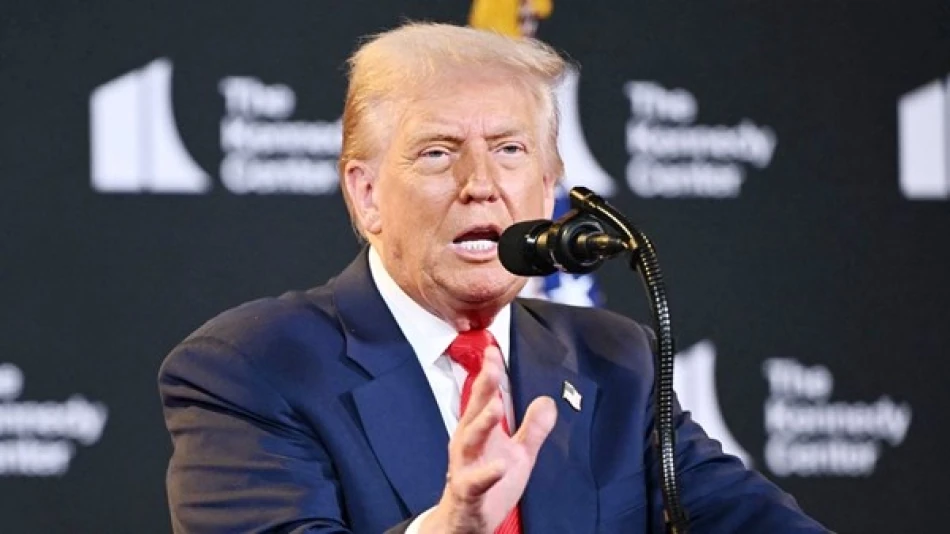
Trump Seeks to Extend Federal Control over Washington, D.C. Police Force
Trump Extends Federal Control Over Washington Police, Eyes Nationwide Model for Crime Fighting
President Donald Trump announced Wednesday he will ask Congressional Republicans to extend federal control over Washington D.C.'s police force beyond the initial 30-day emergency period, signaling an unprecedented expansion of presidential authority over local law enforcement. The move represents a dramatic shift in federal-local relations and could serve as a template for similar interventions in other major American cities.
Emergency Powers Become Long-Term Strategy
Trump's decision to extend federal oversight transforms what began as a temporary emergency measure into a sustained federal intervention. On Monday, the president invoked the District of Columbia Home Rule Act, a federal statute that grants the president emergency authority over D.C. police operations for up to 30 days during crisis situations.
The original emergency declaration came alongside the deployment of 800 National Guard troops to Washington, mirroring tactics Trump employed in Los Angeles last June. During that operation, he mobilized thousands of National Guard soldiers and hundreds of Marines to respond to protests following immigration enforcement raids by his administration.
Blueprint for Democratic-Led Cities
Trump explicitly framed the Washington intervention as a potential model for other American cities, particularly those under Democratic leadership. He has specifically threatened to expand similar operations to Chicago, which he argues has failed to adequately address rising crime rates.
Legal Complexities Beyond the Capital
However, replicating Washington's federal takeover in other cities presents significant constitutional and legal hurdles. Washington D.C.'s unique status as a federal district grants the president authorities that don't exist in traditional states and municipalities. Other major cities operate under state jurisdiction with stronger constitutional protections against federal intervention.
The Posse Comitatus Act typically restricts military involvement in domestic law enforcement, though National Guard units operating under state authority face fewer constraints. Trump's ability to extend this model would likely require either state cooperation or the invocation of the Insurrection Act, a rarely used federal statute.
Precedent and Political Implications
This federal law enforcement intervention represents one of the most direct assertions of presidential control over local policing in modern American history. While presidents have deployed federal forces during civil unrest—from Eisenhower's integration of Little Rock schools to Bush Sr.'s response to the Los Angeles riots—sustained federal control over municipal police departments breaks new ground.
Congressional Republicans Face Critical Decision
Trump's request puts Congressional Republicans in a delicate position. Supporting the extension would establish a precedent for federal oversight of local law enforcement that could be used by future presidents of either party. The decision will test Republican commitment to traditional conservative principles of federalism and local governance.
The outcome will likely influence Trump's broader law enforcement strategy and signal whether his administration can successfully centralize crime-fighting efforts under federal authority, potentially reshaping the balance of power between federal and local governments for years to come.
Most Viewed News

 Layla Al Mansoori
Layla Al Mansoori






